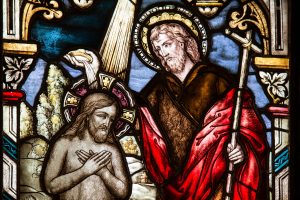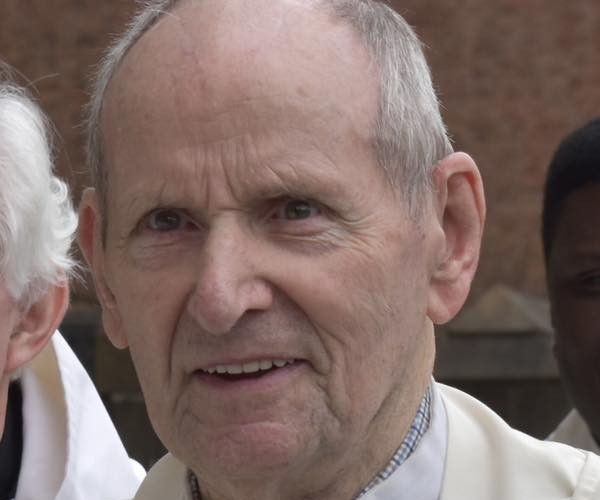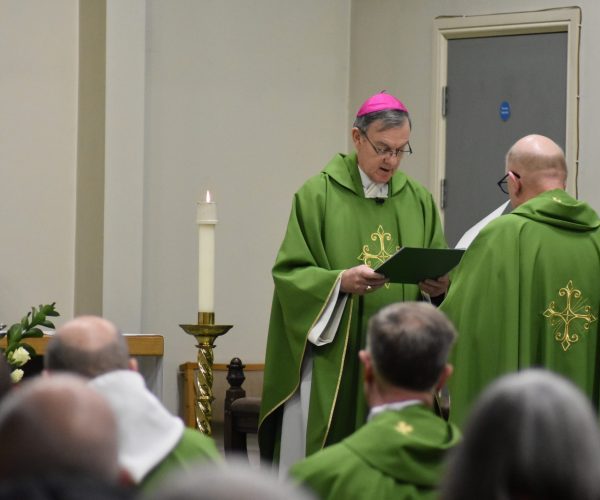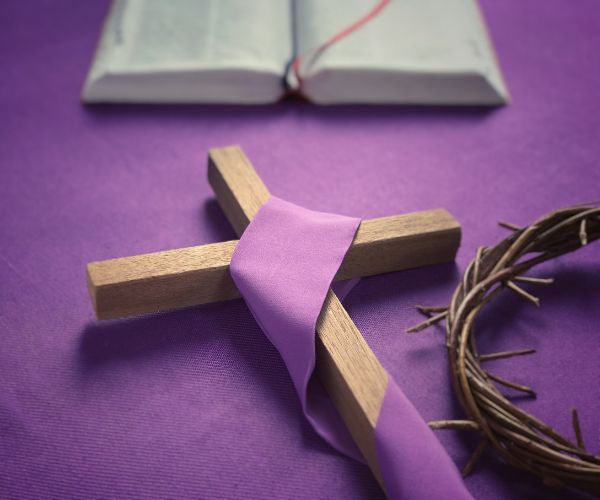
Five Lessons from John the Baptist
Wednesday 15th December 2021John the Baptist undoubtedly remains a mysterious and intriguing figure for religious people around the world. Images of a dishevelled man wandering around the desert in camel hair and existing on a diet of locusts and honey continues to capture our imagination to this day. But what do these images and the words of a prophet from long ago bring to our daily lives as Christians?
In this week’s readings, we revisit the life and work of St John the Baptist – a man who came “to bear witness about the light, that all might believe through him” (John 1:7). Throughout this third week of Advent, our readings shine a light on the unique and important role John the Baptist had to play in the salvation of mankind, and reminds us of his timeless call to prepare for the coming of Christ.
As we continue exploring more about John the Baptist in this Third Week of Advent, we look at five key lessons we can take from his life and work.
Lifelong dedication and trust in God
Bridging the gap between the Old and New Testaments, the story of John the Baptist begins 700 years before his birth as the prophet Isaiah foretells the “voice of one calling: ‘In the wilderness, prepare the way for the Lord.’”
Now, not everyone has their life heralded to the nations hundreds of years before their birth, but John the Baptist and his exceptional life were out of the ordinary from the very beginning. The Gospel of Luke begins with the foretelling of John the Baptist’s birth, as an angel brings news to an ageing Zechariah that he was to have a son that would be “filled with the Holy spirit” (Luke 1:15).
The angel also warns Zechariah that John must “never drink wine or strong drink”, an instruction that has led some Bible scholars to believe that John was also destined to be Nazirite. In the Hebrew Bible, Nazirites were particularly holy people who had to abide by certain rules, such as abstaining from wine or beverages made from grapes, avoiding cutting one’s hair, and keeping away from any corpses or graves. These vows were kept for a minimum of 30 days, but some – possibly including John the Baptist – were Nazirites for life. Other permanent Nazirites from the Bible include Samson and Samuel.
This lifelong dedication to holiness, as well as John’s desert wanderings and unique lifestyle, can be a powerful reminder to us to prioritise our spiritual needs above our earthly desires; to put God first and trust that He will provide. Jesus reminds us of this in Matthew 6:31-33, saying: “Therefore do not worry, saying ‘what will we eat?’ or ‘what will we drink?’ or ‘what will we wear?’ For it is the Gentiles who strive for all these things; and indeed, your heavenly Father knows that you need all these things. But strive first for the kingdom of God and His righteousness, and all these things will be given to you as well.”
Not being afraid to be different
It’s fair to say that John the Baptist wasn’t your average Joe. From wandering in the desert, to wearing clothes of camel hair, and living off locusts and honey, John the Baptist’s lifestyle was certain to raise a few eyebrows, even in early AD Israel. But aside from questionable fashion and a diet that wouldn’t be out of place on I’m a Celebrity, this unusual way of living can teach us a valuable lesson on not being afraid to go against the status quo for what we believe.
In a world that is rapidly changing, our faith can sometimes feel at odds with people around us. Often, faith can raise a few eyebrows, it can subject people to ridicule, and – in some parts of the world – even persecution. Despite the hardship, it is important for us to remember that our lives as Christians can often call us to go against the grain, but we can take courage from the example of John the Baptist to live life as we’re called, not how society expects.
Once again, Jesus offers words of comfort on this as he reassures his disciples prior to his arrest:
“If you belonged to the world, the world would love you as its own. Because you do not belong to the world, but I have chosen you out of the world – therefore the world hates you. Remember the word that I said to you, ‘Servants are not greater than their master’. If they persecuted me, they will persecute you” (John 15:18-21).
Sometimes living out our faith can be hard, particularly if your faith isn’t shared by your friends or family, but the example of John the Baptist and the loving words of Jesus give us comfort that if we are following Christ, despite the signs in the world around us and any difficulties we may face, we are on the right path and exactly where God means us to be.
Following a Call
Each of us has a role to play in building up the Kingdom of God. Whether you’re called to Holy Orders, or whether you’re a parent or spouse, a teacher, a healer, an artist; we’ve all been blessed with gifts to give praise to God and share with each other. John the Baptist also had a role: to prepare Israel for the coming of the Messiah.
“And you, child, will be called the prophet of the Most High; for you will go before the Lord to prepare His ways, to give knowledge of salvation to His people by the forgiveness of their sins” (Luke 1:76-78).
When we look at Luke’s Gospel, the importance of this role cannot be underestimated. Luke chooses to begin the great story of our redemption with the foretelling of John the Baptist, consolidating within the very structure of his Gospel this idea of a prophet that paves the way for Christ – a theme that comes into play long before either baby was born.
Now, having a pre-determined destiny to prepare the ground for someone greater might be hard for some of us to swallow. We all want our gifts to be recognised, to shine out, but John realised that his role in the story of salvation was bigger than he was himself, and that his greatness lay in preparing the way for someone greater still:
“I baptise you with water; but one who is more powerful than I is coming; I am not worthy to untie the straps of His sandals. He will baptise you with the Holy Spirit and fire” (Luke 3:16).
This idea of preparing a way for others, for facilitating a way for others to shine can teach us a valuable lesson. Sometimes, our call isn’t to be centre stage but to use our gifts and strengths to allow the goodness, the skills, and the talents of others to shine through all the brighter.
“The body is a unit, though it is made up of many parts; and though all its parts are many, they form one body” (1 Corinthians 12:12).
Each of us has a role to play in building up the Kingdom of God, but we all need each other in all our respective roles to succeed.
Rejoice
“When Elizabeth heard Mary’s greeting, the child leaped in her womb” (Luke 1:41)
The amazing description of John the Baptist leaping for joy in the womb of his mother when he first comes close to Jesus is an image every Christian should carry in their heart.
Often life can grind us down and many of us – especially over the past two years – have experienced true hardship and grief. But the very essence of Christianity lies in hope and joy, in the fact that no matter how hard life gets, Jesus is with us through it all – even through the gates of death itself.
John the Baptist’s joyous leaping calls us to remember that we are an Easter people; that through Christ’s death and resurrection, we have cause for the greatest of joy; and we too should remember to greet the Lord with the happiness and gratitude of a people saved.
Speak out for justice and truth
John the Baptist’s extraordinary life came to end when he decided to challenge the tetrarch Herod over his decision to divorce and marry his brother’s wife. After confronting Herod, John was arrested, and eventually beheaded on the request of his new wife Herodias, through her daughter Salome.
John’s unapologetic decision to speak out for what he believed and for the laws of God eventually cost him his life, but his determination and unwavering integrity gives us courage to stand up and speak out against injustices in our world.
From discrimination, to war, poverty, hunger, and climate change, people in our diocese and around the world suffer the impact of injustice every day of their lives, but John gives us the courage to challenge these injustices and bear witness to justice and truth.




